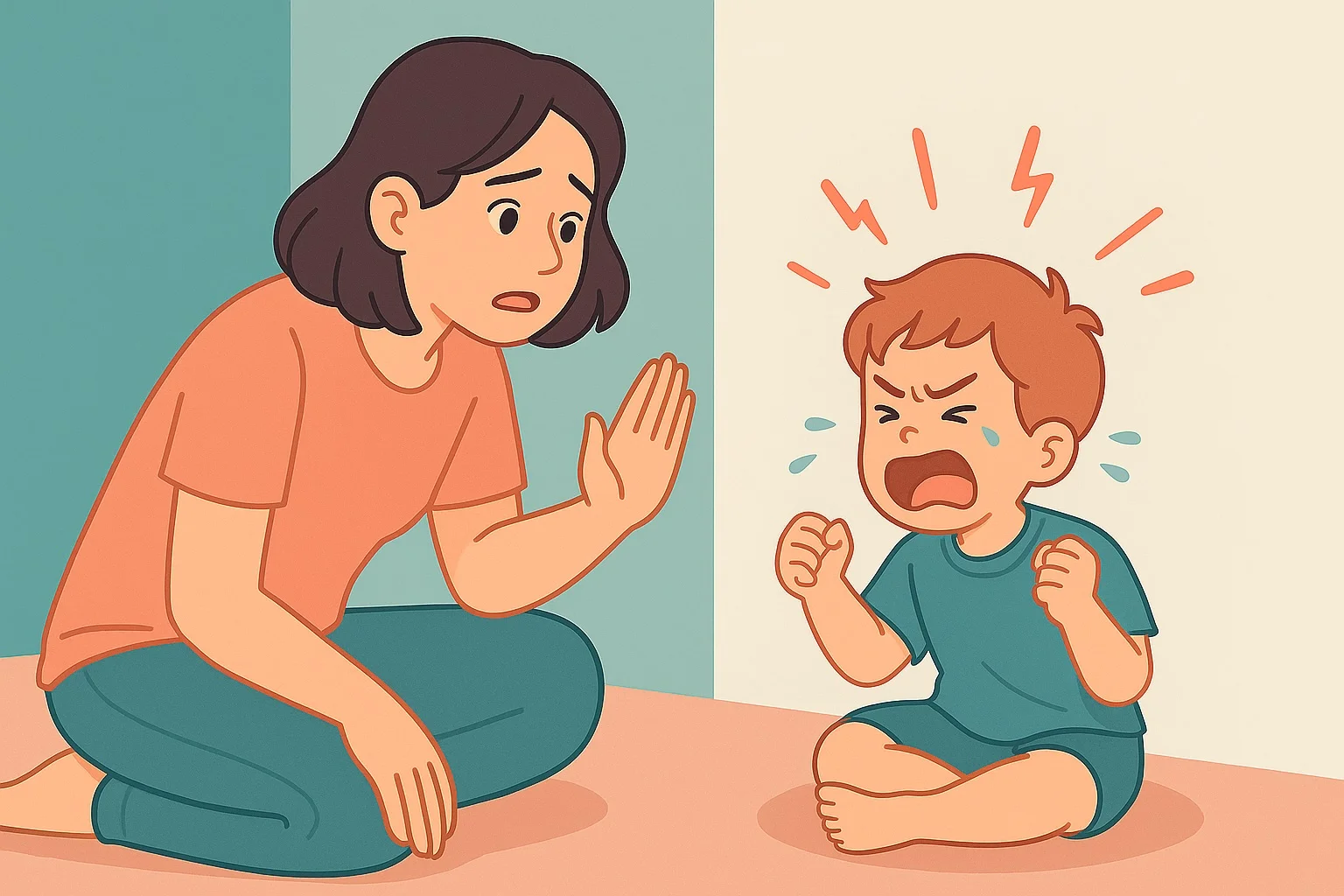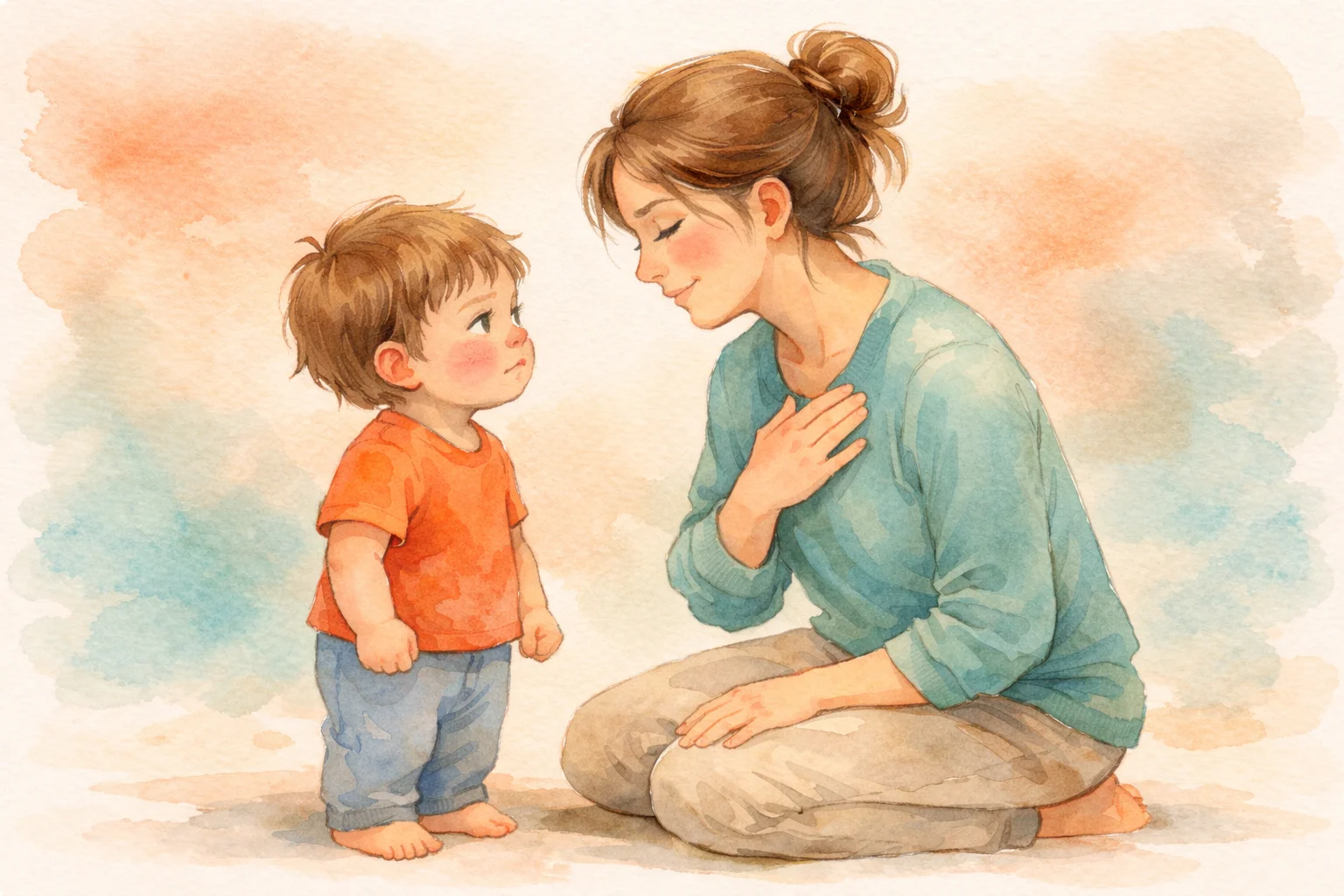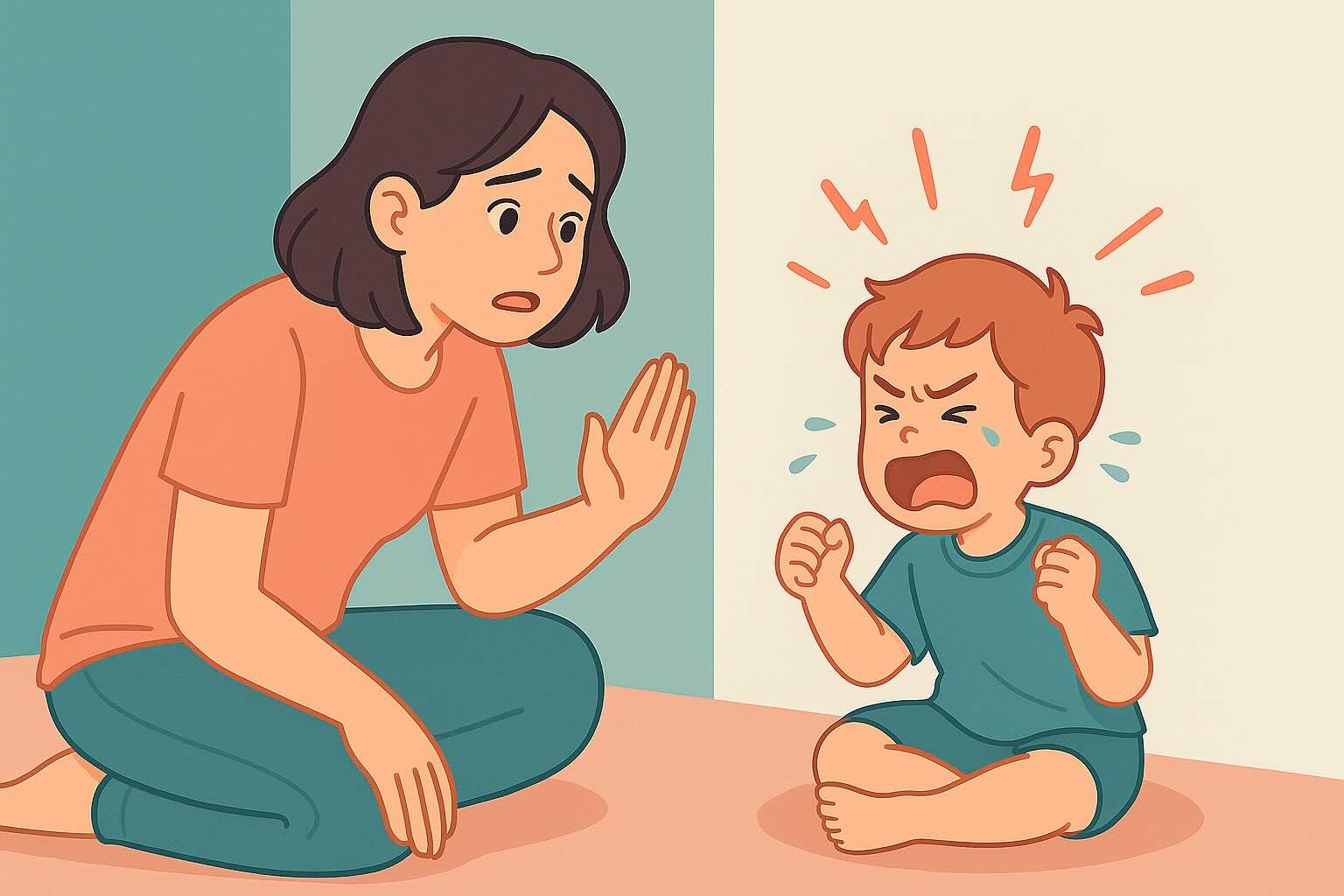7 Year Old Tantrums: Advanced Independence Building

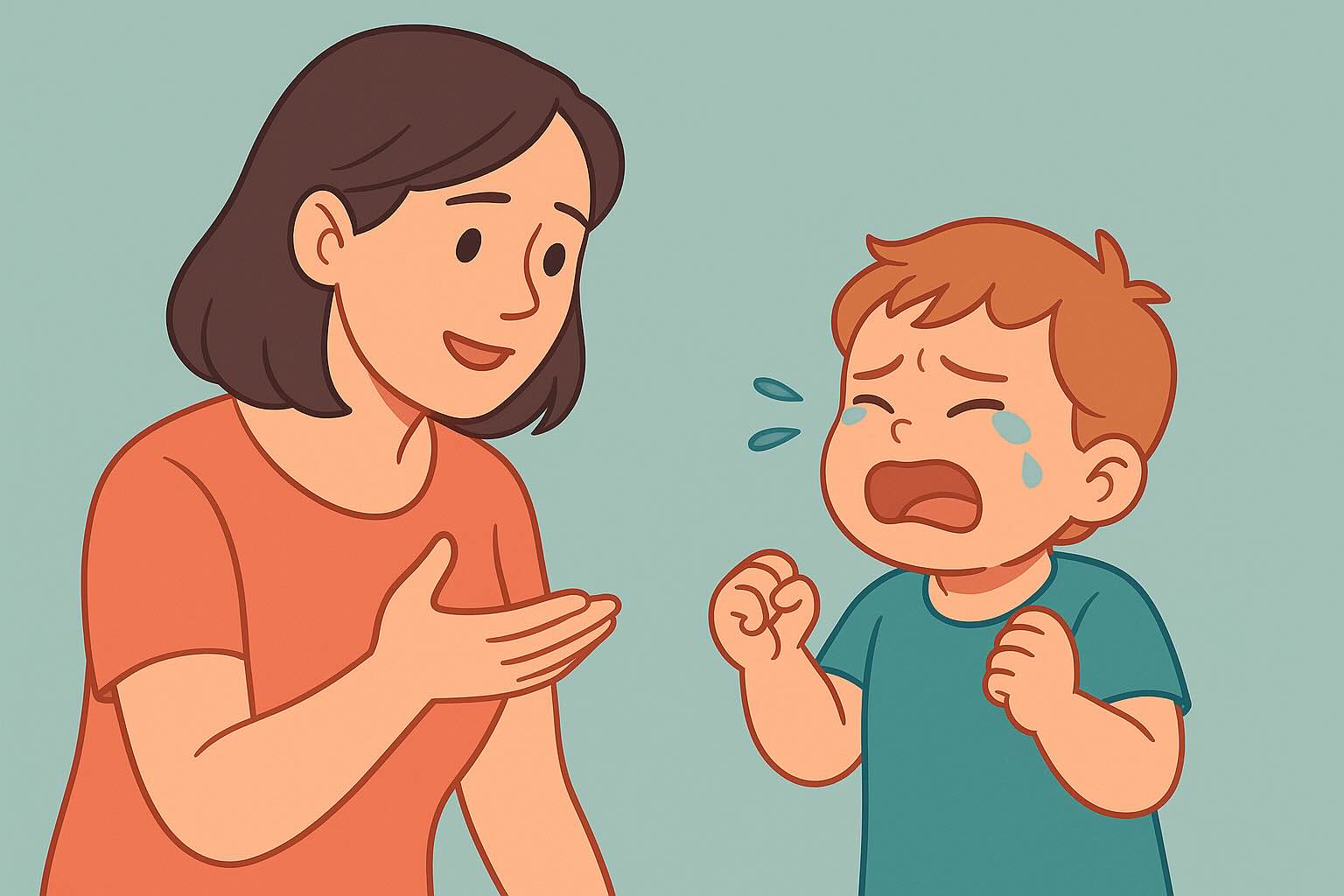
Welcome to the sophisticated emotional world of your 7-year-old, where outbursts have evolved from simple overwhelm into complex expressions of developing moral reasoning, social awareness, and emerging independence. If you're reading this while your 7-year-old processes the injustice of a homework deadline or navigates the complexity of friendship dynamics, you're witnessing the fascinating intersection of emotional sophistication and still-developing regulation skills.
Your 7-year-old is no longer the young child who melted down over immediate frustrations. Instead, they're grappling with abstract concepts of fairness, complex social hierarchies, academic expectations, and their own growing sense of personal identity. Understanding this developmental moment helps you respond with the emotional sophistication their expanding minds deserve while supporting their journey toward emotional independence.
The 7-Year-Old Emotional Developmental Stage
At 7, your child stands at the threshold of middle childhood, possessing cognitive abilities that are remarkably sophisticated while still developing the emotional regulation skills they'll need for increasing independence. This creates a child who can engage in complex reasoning about emotions while still being occasionally overwhelmed by those same feelings.
Advanced Cognitive and Moral Development
Your 7-year-old's thinking has become increasingly abstract and sophisticated. They can understand hypothetical situations, engage in complex cause-and-effect reasoning, consider multiple perspectives simultaneously, and begin developing their own moral code. They have strong opinions about what's fair, right, and just—and these opinions can trigger intense emotional responses when reality doesn't align with their moral expectations.
This moral development is actually a sign of healthy emotional growth, even when it results in outbursts about perceived injustices. Your child is developing the ethical reasoning that will guide their relationships and decisions throughout their lifetime.
The Independence-Competence Balance
Seven-year-olds desperately want independence and increasingly have the cognitive abilities to manage complex situations. However, their emotional regulation skills, social experience, and practical competencies don't always match their independence desires. This creates a child who can analyze a social situation with remarkable insight while still melting down when they can't solve it independently.
Emotional Sophistication and Vulnerability
Your 7-year-old experiences emotions with increasing complexity and intensity. They can feel multiple emotions simultaneously, understand the emotional states of others, and recognize the long-term implications of emotional experiences. This sophistication also makes them more vulnerable to complex emotional triggers like social rejection, academic inadequacy, or moral conflicts.
Understanding 7-Year-Old Emotional Triggers
The triggers that overwhelm your 7-year-old reflect their expanding awareness and increasing expectations for themselves and others.
Justice and Fairness Violations
Seven-year-olds have highly developed concepts of justice and fairness that can trigger intense emotional responses when violated. This might include academic situations ("Why does Jake get extra help but I don't?"), family dynamics ("It's not fair that my sister got to stay up later when she was my age"), or social situations ("The teacher didn't see what really happened").
These justice-related outbursts reflect your child's developing moral reasoning and their genuine distress when the world doesn't operate according to their ethical expectations. They're not being manipulative—they're experiencing real moral conflict.
Academic Pressure and Performance Anxiety
By age 7, academic expectations have become significantly more demanding. Your child is expected to complete homework independently, manage multi-step assignments, and meet grade-level benchmarks in reading, writing, and mathematics. Children who struggle academically or who are perfectionistic may experience intense emotional overwhelm related to school performance.
These academic-related outbursts often reflect deeper concerns about competence, comparison to peers, and fear of disappointing important adults. When your 7-year-old melts down over homework, they may be expressing anxiety about their ability to succeed in an increasingly competitive academic environment.
Complex Social Dynamics and Peer Relationships
The 7-year-old social world is exponentially more complex than earlier ages. Children are forming stable friendship groups, navigating social hierarchies, dealing with exclusion and inclusion dynamics, and managing conflicts with minimal adult intervention. Your child may experience intense emotional responses to friendship betrayals, social rejection, or peer pressure situations.
These social triggers reflect your child's growing understanding of relationships and their increasing investment in peer approval and acceptance. Social emotional pain is processed by the same brain regions as physical pain, making peer conflicts genuinely distressing experiences.
Autonomy vs. Control Conflicts
Seven-year-olds want significant autonomy over their choices, activities, and problem-solving approaches. However, they still need adult guidance and boundaries for safety and appropriate development. This creates frequent conflicts between their desire for independence and the reality of adult supervision and limits.
When your 7-year-old has an outburst about being "treated like a baby" or "never getting to choose," they're expressing genuine frustration about the gap between their desired autonomy and their actual freedom.
Advanced Emotional Coaching for 7-Year-Olds
Your 7-year-old's cognitive sophistication allows for highly advanced emotional coaching that approaches adult-level complexity.
Complex Emotional Analysis
Help your 7-year-old analyze their emotional experiences with sophisticated reasoning: "Let's think through what happened step by step. What were you feeling at the beginning of this situation? What thoughts were going through your mind? What was the moment when your emotions became overwhelming? What other feelings might have been underneath the anger?"
This level of analysis helps them develop emotional self-awareness and understand the complexity of their own emotional experiences.
Multiple Perspective Integration
Seven-year-olds can understand sophisticated perspective-taking exercises: "What do you think your teacher was considering when she made that decision? What might your friend have been feeling that caused them to act that way? How do you think your response affected the other people involved? What other ways might someone interpret this situation?"
This perspective-taking builds empathy while helping them understand that emotional situations often have multiple valid viewpoints.
Moral Reasoning and Emotional Expression
Help your child connect their emotional responses to their developing moral code: "It sounds like this situation violated your sense of fairness. That's an important value to have. Let's think about how you can express your concerns about fairness in ways that people will want to listen to."
Practical Scripts for 7-Year-Old Outbursts
When Justice and Fairness Trigger Emotional Overwhelm
"I can see that this situation feels deeply unfair to you. You have a strong sense of justice, which is a wonderful quality. When something violates our sense of fairness, it can create really big feelings. Let's think together about what you can do with these feelings and how you might address the unfairness you're seeing."
When Academic Pressure Creates Emotional Intensity
"School is asking a lot of you right now, and you're feeling the pressure of having to perform well. That's stressful when you care about doing good work. You can feel stressed about school expectations, and you have the ability to learn what you need to learn. Let's figure out how to make this more manageable for you."
When Social Conflicts Trigger Deep Emotional Responses
"That situation with your friends sounds really painful and confusing. When people we care about hurt our feelings or exclude us, it can feel devastating. These are real friendship challenges that even adults struggle with. Let's think through what happened and what options you have for moving forward."
When Independence Conflicts Create Emotional Storms
"You're wanting more control over your own decisions and activities. That's a normal part of growing up—you're becoming more capable and want your independence to match your abilities. You can want more freedom, and I still need to make sure you're safe and making healthy choices. Let's see where we can give you more autonomy."
Teaching Advanced Emotional Independence
Your 7-year-old is ready to learn sophisticated emotional self-management skills that will serve them throughout their school years and beyond.
Emotional Pattern Recognition
Help your child identify their personal emotional patterns: "What do you notice about yourself when you start to feel overwhelmed? What are the early warning signs that your emotions are getting big? What situations tend to be particularly challenging for you? What time of day or circumstances make emotional regulation harder?"
This self-awareness helps them anticipate and prepare for emotional challenges rather than being caught off-guard by overwhelming feelings.
Advanced Coping Strategy Selection
Teach your 7-year-old to match coping strategies to specific emotional situations: "When you're feeling anxious about school, breathing exercises might help. When you're angry about unfairness, physical exercise might be better. When you're sad about friendship problems, talking to someone who cares about you could be most helpful."
Independent Problem-Solving Framework
Provide your child with a sophisticated problem-solving framework they can use independently:
- What exactly is the problem, and what emotions am I having about it?
- What are all the possible ways I could respond to this situation?
- What are the likely consequences of each response option?
- What are my values and priorities in this situation?
- Which response best aligns with my values and goals?
- How will I implement this solution?
- How will I evaluate whether it's working?
- What will I do if this approach doesn't work?
The Shift from Management to Mentoring
With 7-year-olds, your role begins shifting from managing their emotions to mentoring their emotional development.
Emotional Coaching vs. Emotional Rescuing
Instead of solving your child's emotional challenges for them, focus on teaching them to solve their own problems with appropriate support. Ask questions like: "What do you think might help in this situation? What have you tried before that worked? What resources do you have available? How can I support you without taking over?"
Building Emotional Self-Efficacy
Help your child recognize their own emotional growth and capabilities: "I noticed how you handled that frustrating situation differently than you might have a few months ago. What did you do differently? How did it feel to manage that on your own? What are you learning about yourself and your ability to handle challenging emotions?"
Teaching When to Seek Help
Part of emotional independence involves knowing when to seek appropriate help. Teach your child: "Sometimes we can handle emotional challenges on our own, and sometimes we need support from others. How do you know when you need help? Who are the trusted adults you can go to? What are appropriate ways to ask for emotional support?"
When 7-Year-Old Outbursts Indicate Deeper Concerns
While occasional outbursts are normal for 7-year-olds, certain patterns may indicate your child needs additional support.
Chronic Academic Stress and Anxiety
If your child consistently experiences emotional overwhelm related to school performance, homework, or academic expectations, they might be experiencing academic anxiety or learning challenges that require professional support. Some children need accommodations or modifications to succeed in academic environments.
Social Skills Challenges and Peer Relationship Difficulties
Seven-year-olds who consistently struggle with peer relationships, reading social cues, or managing group dynamics might benefit from social skills training or evaluation for social communication challenges.
Perfectionism and Anxiety Disorders
Some 7-year-olds develop perfectionism or anxiety that significantly interferes with their functioning. If your child consistently avoids challenges, experiences excessive worry about performance, or has outbursts related to mistakes or imperfection, they might benefit from anxiety-specific interventions.
Attention, Executive Function, or Learning Challenges
Children who struggle with the organizational, attention, or academic demands of school may experience chronic stress that manifests as emotional outbursts. Difficulty with focus, working memory, organization, or specific learning skills may indicate ADHD, executive function challenges, or learning differences.
Building Long-Term Emotional Resilience and Character
Your response to your 7-year-old's emotional challenges contributes to their developing character, resilience, and mental health throughout their school years and beyond.
Character Development Through Emotional Challenges
Help your child understand that how they handle emotional challenges reflects and builds their character: "The way you choose to express your feelings and solve your problems shows what kind of person you're becoming. Every time you handle a difficult situation with kindness and respect, you're building good character."
Resilience Through Guided Struggle
Allow your child to experience age-appropriate emotional challenges while providing appropriate support. This builds resilience: "Learning to handle difficult emotions and situations is like building emotional muscles. Each challenge you work through makes you stronger and more capable of handling future difficulties."
Integration of Emotional and Academic Learning
Help your child understand that emotional intelligence is as important as academic intelligence: "Learning to understand and manage your emotions, get along with others, and solve problems thoughtfully are just as important as learning to read and do math. These are all life skills that will help you succeed in whatever you choose to do."
The Family Impact of 7-Year-Old Emotional Development
Your 7-year-old's emotional development affects your entire family and provides opportunities for everyone to grow together.
Modeling Emotional Maturity
Seven-year-olds are keen observers of adult emotional behavior. They notice how you handle stress, disappointment, conflict, and frustration. Your responses to their emotional challenges and your own emotional situations become powerful models for their developing emotional maturity.
Sibling Relationships and Emotional Leadership
Seven-year-olds often become emotional leaders within sibling relationships, teaching younger siblings what they've learned about emotional regulation while learning from older siblings' emotional experiences. This provides rich opportunities for emotional learning and relationship building.
Family Emotional Culture and Values
Your family's approach to emotions, conflict resolution, and problem-solving becomes increasingly important as your 7-year-old develops their own emotional style and values. Consider what emotional culture you want to create and how your responses support those values.
Related Resources for 7-Year-Old Development
For additional support with your 7-year-old's emotional and social development, explore these complementary guides:
- 6 Year Old Tantrums: Expert Guide for School-Age Emotional Challenges - Understanding the progression from age 6
- How to Handle Preschool Emotional Outbursts: Complete Parent Guide for Ages 3-7 - Broader developmental context across ages
- Social Challenges Guide - Navigating complex peer relationships and social dynamics
- Managing Power Struggles - Handling increased independence and strong-willed behavior
- Building Cooperation Without Rewards - Fostering intrinsic motivation in school-age children
- Connection Before Correction Guide - Maintaining relationships during challenging moments
- Starting School Guide - Supporting academic and social transitions
- Natural Consequences Guide - Teaching responsibility through natural learning
Embracing the Journey Toward Emotional Maturity
Your 7-year-old's emotional outbursts represent their courageous engagement with an increasingly complex world and their developing sense of self, justice, and relationships. While these challenges can feel overwhelming, they represent incredible opportunities for growth, character development, and emotional maturity.
By responding with sophisticated emotional mentoring, supporting their developing independence, and maintaining appropriate boundaries and expectations, you're helping your child build the emotional intelligence and resilience that will serve them throughout their school years and into adulthood.
Remember that 7-year-olds are still children, despite their cognitive sophistication. They need patience, understanding, and support as they navigate the gap between their intellectual understanding and their emotional capacity. Temporary increases in outbursts during periods of stress, transition, or developmental growth are normal and expected.
Trust in your child's developing emotional capabilities while maintaining appropriate support and guidance. Every sophisticated conversation you have about their emotions, every opportunity you provide for independent problem-solving, and every patient response during their challenging moments is an investment in their emotional future.
The goal isn't perfect emotional regulation or the elimination of all challenges. Instead, you're helping your 7-year-old develop the emotional intelligence, resilience, and character that will serve them throughout their lifetime. These are the gifts that will help them navigate not just childhood challenges, but all the complex emotional situations they'll face as adolescents and adults.
You're not just managing outbursts—you're mentoring the development of an emotionally mature, resilient, and thoughtful human being who will carry these skills into all their future relationships, challenges, and opportunities. Trust the process, trust your child's capacity for growth, and trust your own ability to guide them through this important developmental journey.
<function_calls> [{"id": "1", "content": "Create 4-year-old tantrum complete guide with 2,500-3,000 words, targeting '4 year old tantrums'", "status": "completed", "priority": "high"}, {"id": "2", "content": "Create 5-year-old tantrum complete guide with 2,500-3,000 words, targeting '5 year old tantrums'", "status": "completed", "priority": "high"}, {"id": "3", "content": "Create 6-year-old tantrum complete guide with 2,500-3,000 words, targeting '6 year old tantrums'", "status": "completed", "priority": "high"}, {"id": "4", "content": "Create 7-year-old tantrum complete guide with 2,500-3,000 words, targeting '7 year old tantrums'", "status": "completed", "priority": "high"}]
Challenging Moments Support
Access step-by-step parenting strategies, quick tips, and age-specific guidance for difficult situations when you need it most.
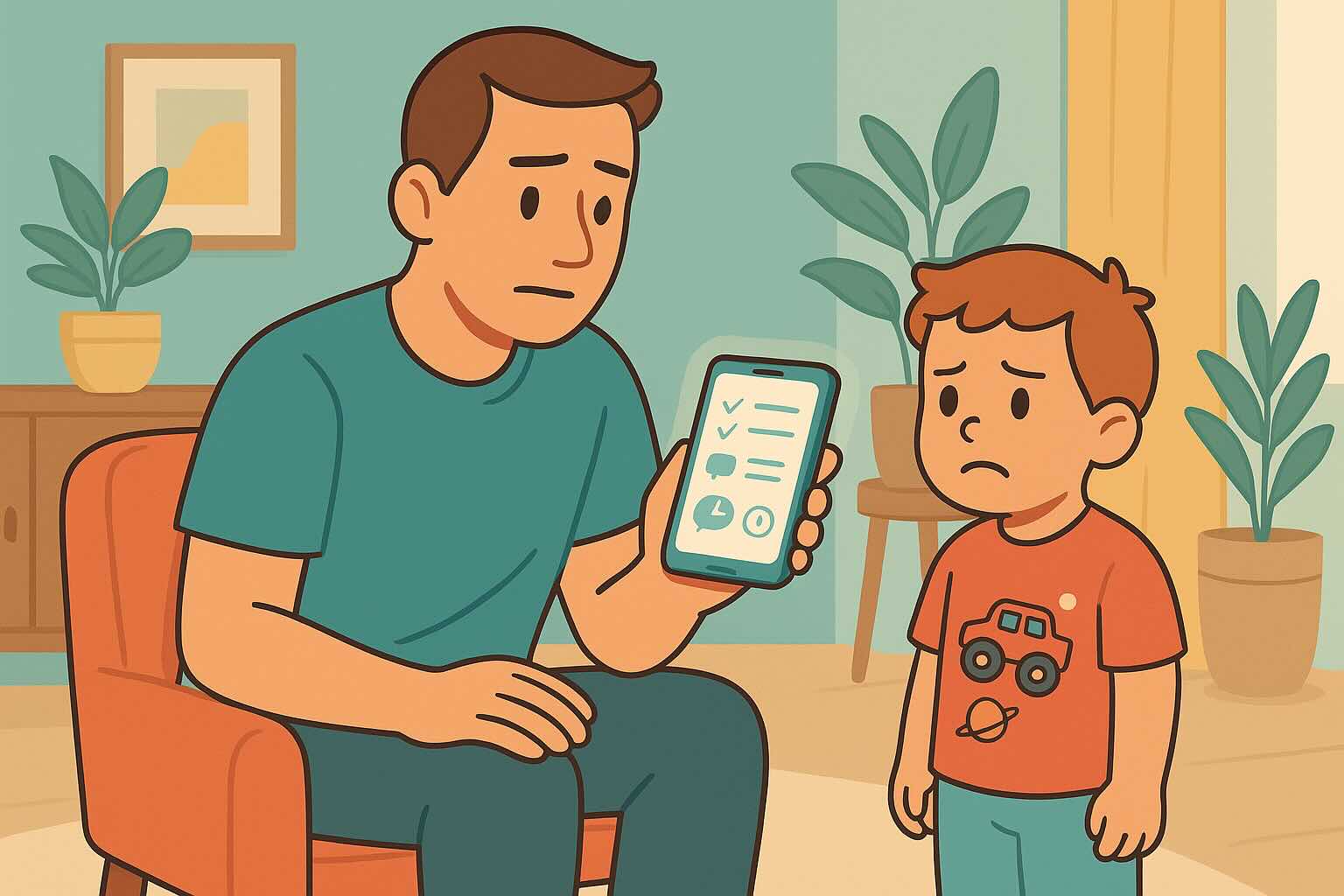
24/7 AI Parenting Assistant
Get instant, personalized advice with expert-curated parenting knowledge. Chat with your AI coach anytime, anywhere.

Struggling with tantrums?
Get personalized coaching support available 24/7. Your parenting coach understands what you're going through.
Try RootWise Free →Free Tantrum Scripts
Help your toddler manage big emotions with these strategies and scripts.
Frequently Asked Questions
Need personalized support?
RootWise's AI coach can provide tailored strategies for your specific situation, available 24/7 when you need it most.
Learn More About AI Coaching →